
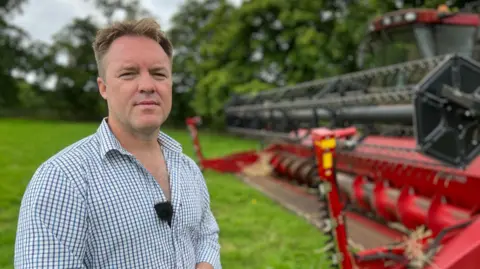 BBC
BBCSynthetic meat created in a laboratory “need not spell disaster to farms”, according to a new report.
Researchers from the Royal Agricultural University (RAU) spoke to over 80 farmers for a major new study.
The US State of Florida and Italy have already banned development of lab-made meat products, claiming the industry threatens traditional farming.
But British farmers told researchers from the RAU they did not see “alternative meat” products as a threat.
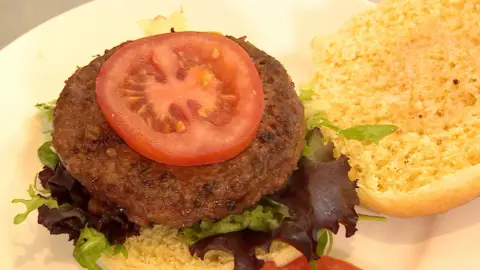
Professor Tom MacMillan, who led the research team for the Cirencester-based RAU said: “There was a lot of curiosity to something often seen as the enemy of farming.
“Farmers were really engaged in the practical possibilities, supplying ingredients to the technology, maybe even hosting production units on their farms.”
What is ‘lab-cultured meat’?
Scientists have long been trying to create alternatives to popular meat products without farming live animals.
The main reason is climate change.
All livestock farming creates large amounts of carbon dioxide and methane, which increase climate change.
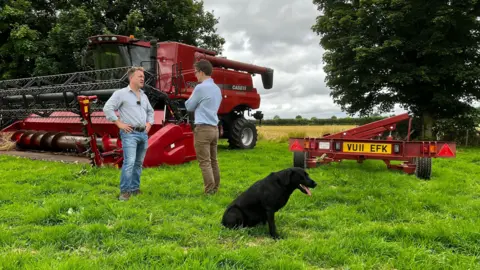
Prof MacMillan said: “The environmental cost of meat production globally means we need to throttle back, and widening the range of safe, tasty, and affordable alternatives to traditional meat can help.”
For many years the food industry had created lookalike burgers and sausages and other products using textured protein from soya, peas and other plants.
Now scientists are creating entirely synthetic proteins in the lab.
A lab-cultured chicken product is on sale in Singapore, and tests are running on beef and lamb equivalents.
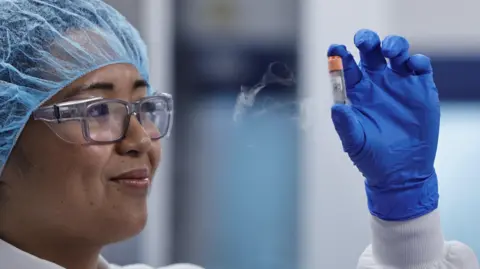 Reuters
ReutersBut some US states have already banned the practice, and the Italian government has outlawed synthetic meat development altogether.
“Italy is the world’s first country safe from the social and economic risks of synthetic food,” said Agriculture Minister Francesco Lollobrigida.
Does lab-made meat spell the end of livestock farming?
At face value, yes.
If scientists and the food industry can supply all the meat-like protein we need in a factory, who needs traditional farmers? Not just livestock farmers either.
One of the farmers who took part in the study, Dom Morris, lives on his family’s mixed farm in the Cotswolds.
“Lots of the grain grown on this farm goes into the food chain to feed animals,” he explained.
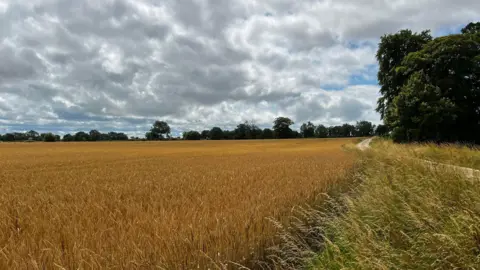
“We’d like to use some of our arable land for new animal farming, so this would have profound consequences on mixed family farms like this.”
But Prof MacMillan discovered that the threat to farming is a long way off, if it’s there at all.
“People will be eating meat, animals will be on farms like this for the rest of my life, and decades after that,” he explained.
“It’s a slow-burn risk”.
Could farmers be part of the lab-meat industry?
There are two types of alternatives to meat at the moment, and they both need raw materials that farmers can grow.
The now familiar “plant-based proteins” found in alternative burgers, sausages, bacon and chicken products all start out as soya, peas, or other plant proteins.
Plenty of UK farmers are supplying that industry already.
Lab-cultured meat needs ingredients like rape meal, which is left over from oil seed rape after it has been pressed for its oil.
Farmers like Dom Morris are investigating selling that to the cultured meat industry, turning a waste-product into a source of income.
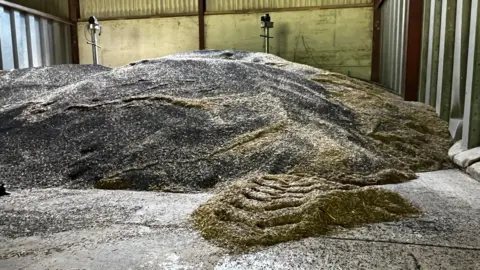
Most surprising of all, the report found farmers considering inviting the meat-fakers onto their farms to do business.
At the moment, the industry is small. Lab tests have been successful, but mass production has not begun in Europe yet.
Dom Morris thinks there was no reason why synthetic meat labs could not set up right inside his Cotswold barns.
He said: “We’d like to produce it here, on our farm, in our old Victorian farm buildings.
“There’s the Cotswold premium at the moment, and everyone wants to know where their food comes from.
“So why not?”



Be the first to comment